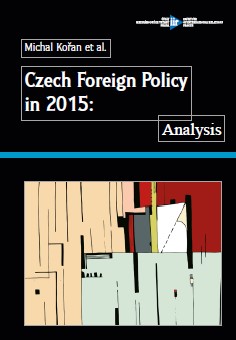The Balkan dimension of Czech foreign policy
The Balkan dimension of Czech foreign policy
Author(s): Tomáš Dopita
Subject(s): Political history, Government/Political systems, International relations/trade, Political behavior, Comparative politics, Present Times (2010 - today), Geopolitics
Published by: Ústav mezinárodních vztahů
Keywords: Czech Republic; foreign policy; Balkan region; Geopolitics; NATO; EU; Diplomatic efforts;
Summary/Abstract: Identically to former years, some representatives of the Czech foreign policy continued with the proactive support of the Western Balkans Euro-Atlantic integration in 2015 as the main long-lasting priority of the Balkan dimension within the Czech foreign policy. Identically to former years, the Czech foreign policy was polarized and politicised in regard to the independence of Kosovo. The normalisation process be-tween Serbia and Kosovo, commenced by the agreement from April 2013, was not reflected in the Czech foreign policy but it was considered by the Czech media. In 2015, the trend of geopolitical competing continued between the EU and Russia; it started in 2014 and functioned as a catalyst for the Euro-Atlantic integration of the Western Balkans and the counterbalance to the tiredness from the integration in the old EU member states. The general procedure during the integration of the Western Balkans was accompanied by the further development of direct economic and social relationships with all South East European countries, and the economic dimension in 2015 was less affected by former unsuccessful investment expansion of Czech power generating companies in this area. Like in the previous year, the Greek debts played quite a significant and special role in the Czech foreign policy in 2015; it was strongly discussed in the public debate on European and macroeconomic topics but the communication on the official side of the Czech foreign policy was minimal. The new subject of reaction in 2015 from the Czech foreign policy representatives, the public, and media was the wave of migrants passing through the Western-Balkan migration path. In regard to the structure, this chapter focuses on the current solutions and political context of the Czech foreign policy in regard to the Balkan Peninsula. Subsequently, the attention is focused on the agenda and the events in 2015, namely the Euro-Atlantic integration of the Western Balkans, the economic and social relations with Southeast Europe, the refugee wave and the migration. Prior to the conclusion, the analysis of the media context of the Czech foreign policy has been introduced with respect to individual Balkan countries.
Book: Czech Foreign Policy in 2015: Analysis
- Page Range: 208-224
- Page Count: 17
- Publication Year: 2017
- Language: English
- Content File-PDF

